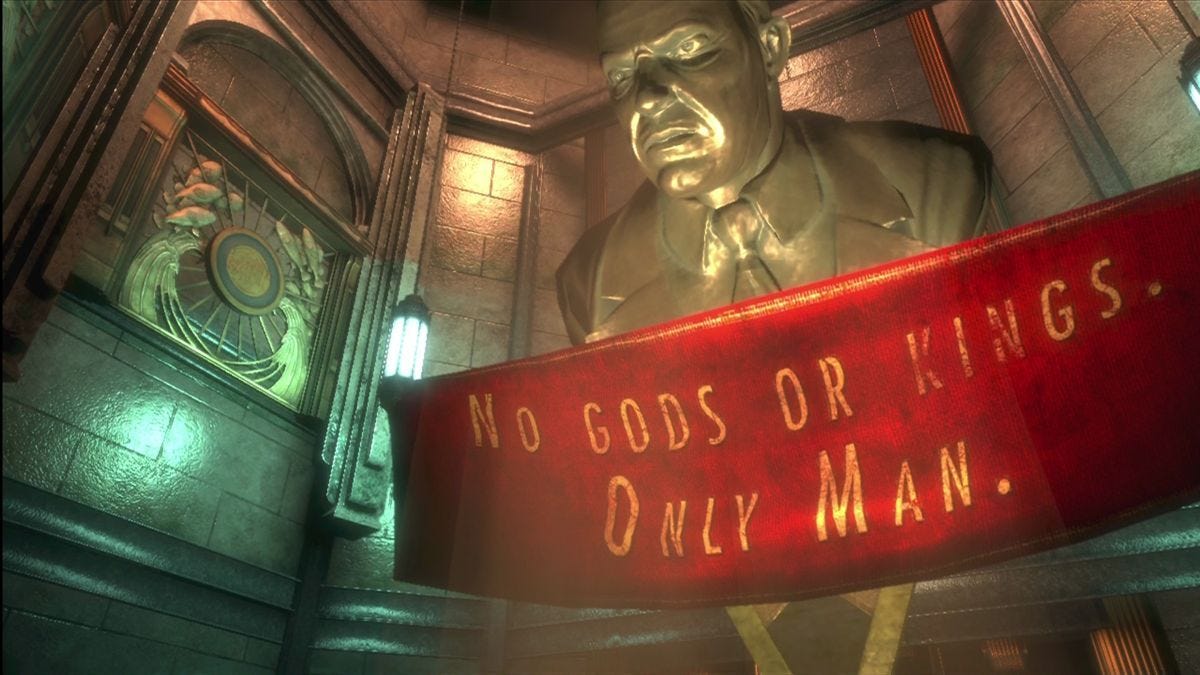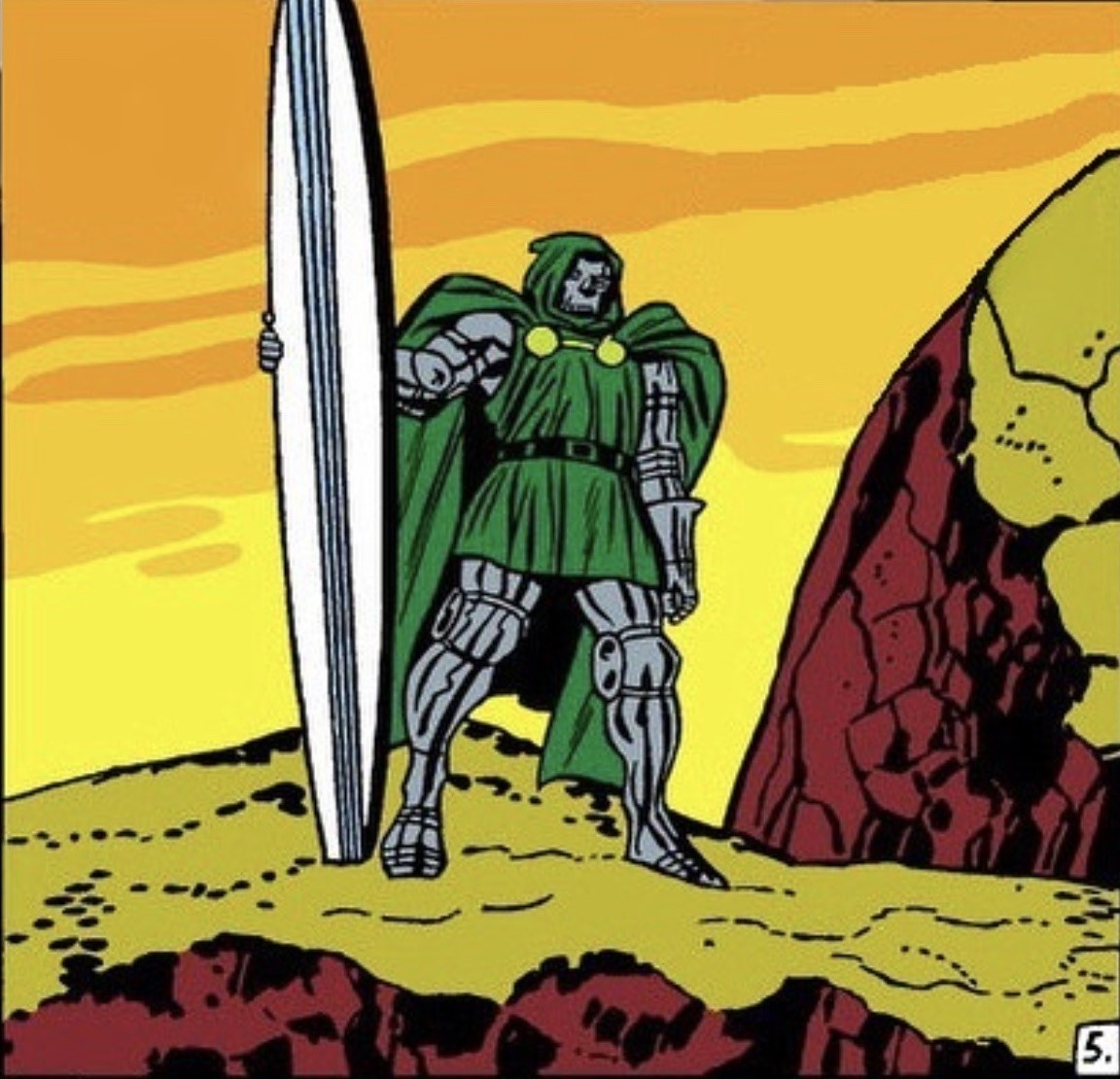I’ll take a corridor over an open world with a loose main story and 500 repetitive side quests
I want a corridor. It means they actually have to tell a story. Open worlds are too often mostly a large collection of lore for you to slowly read and tease out. But world building and lore doesn’t make a game. For many of us, it’s about the journey and story. I don’t need to make world changing decisions when I’m playing “hero.” I want to know heros story with all its cliches and tropes. Give me puzzles to solve, challenges to overcome, and entertaining gameplay instead “choose your own adventure.” It’s like the industry collectively decided that player agency, open worlds, and having options that changed how the story went somehow is what made a game good.
I don’t need to make world changing decisions when I’m playing “hero.”
This is something so many story tellers in gaming and movies don’t get. The story doesn’t have to be about saving the world, the universe, the multiverse or the entire nature of reality. In fact, I would prefer it if the stakes are low enough that the protagonist has actual choices instead of being pushed heavily into the “of course I am going to save the world” option of each “choice”.
I meant as in, I as a player don’t need to be able to make changes that dramatically alter the game world in which I am playing and alter the story beats that I’ll hit.
I don’t like having to make a decision that may lock off entire areas or missions in the game. I no longer have time to devote a replay of a 60 hour game so that I can experience a different story line.
Otherwise, yes. The stakes the character faces in the story don’t always need to be “save the world.”
Personally, I am playing the game to enjoy the story of the character I am playing as. Not to play as me and make my own personal decisions.
Agreed, games that make you replay the entire game to see the 10% of content that were exclusive to a certain decision are not great at all. They are essentially just games with 10% less content for all practical purposes unless we are talking about something where restarting is part of the game play like Rogue-likes.
This has been exactly my feeling for the past decade or so. I love open world, when you have a good concept and a solid story. But corridor is the best way to convey that story and keep the player engaged.
For me, Assassin’s Creed is the ultimate brilliance to rags example: corridor gameplay that became an open world as you progressed in the early games. Which evolved into the meandering, mindless stories of the more recent games. I genuinely have no idea what Valhalla was supposed to be about lol. I finished it, but it was 120 hours I’d rather have back. A corridor style for the late 2010/20s games would have made all of them far more interesting, as they were phenomenal concepts imo.
All this to say, I don’t mind some impactful world decisions that affect story arcs, but bring back the dang corridor and stop hiding behind massive content dumps… Damn it!
deleted by creator
I have heard here on Lemmy or Reddit that all the games were meant to be open world games but only limited by the tech of its age.
Screw that thought!
I don’t believe the dream of all/most game devs were making empty endless maps.
That’s such an awful opinion lol
That’s like saying all books should be Choose Your Own Adventure…
The corridor was only physical. Bioshock’s appeal was not where the player could go, but how the player overcomes the obstacles along the way.
Something a lot of games forget. Customization and personalization is more of a dress up sim anymore, strategy is all ‘the meta’ and build paths and efficient strategies. I miss OG Deus Ex where I dunno what I’m doing but suddenly I found a vent and now I’m hacking a turret to kill the robot that beats my ass. Didn’t know any of that was possible five minutes before.
Games are all predictable, the systems are the same and the same engines/obsession with graphics make a lot of games play the same. The Witcher, Last of Us, Fallen Order/Survivor and Hogwarts Legacy they all feel the same in body language, controls, interactions, it’s stale.
Might I suggest playing some modern CRPGs? Rogue trader and Wasteland 3 have a good bit of that, though im pretty sure everyone ends up turning Abelard into an Angron tier melee combatant in Rogue Trader.
I hear you, but real quick for any developers reading this, do NOT take this to mean you should completely remap the controller so absolutely no muscle memory from every other game carries over.
And give me a goddamn jump button.
absolutely 100%
I like the idea of open worlds much more than I like the reality. With a full time job, kids, and a completionist mindset I just don’t have the time or mental stamina to spend 100+ hours doing side quests and revealing every inch of the map. Not to mention reading all of that dialog and lore.
Give me a corridor with a tight, focused story over a sprawling open world any day of the week. Coincidentally Bioshock was awesome.
Absolutely. Nobody needs an open-world Dead Space. I want 8-12 hours of intense claustrophobia.
Ah yes, Corpse Stomping Simulator 2008.
There was a way you could tell the living ones from the dead but I’ll be damned if I could tell you what it was exactly, I just developed a feeling after the first couple hours.
IIRC you could just telekinesis the bodies since only the ones that were actually dead would react to it. But stomping on every body as Isaac Clarke’s PTSD starts to set in is lore accurate.
Counterpoint, a remastered Dead Space 2 with a lot more exploration capability would go super hard. I WANT to see the nooks and crannies of Titan Sprawl. I WANT to see the full desolation of a Necromorph outbreak. DS1 Remastered got that beautifully right with the new interconnectedness of the Ishimura and the Intensity Director.
Everyone tends to disagree with me but I think Breath of the Wild was the worst thing to happen to Zelda for this reason. I love most other Zelda games but I couldn’t bother finishing BotW and didn’t even try the newer one.
Crazy talk!
It offered some navigational choices within each level from the Medical Pavilion on.
Yeah level design was clever, but constrained by the setting itself.
Wasn’t that part of the whole fun message at least of the first game?
Would you kindly…
Omg yes. It was not just a corridor. It was a send up of every game corridor game that I had played to that point. Taking a design limitation and making it a compelling plot twist was exactly what made bioshock awesome. One of my top 5 gaming moments of all time.
(subconsciously picks up golf club)
Black Myth Wukong is just a corridor and that game is great.
I swear devs come up with the weirdest shit. A good game is a good game. Doesn’t matter if it takes place on a full planet or in a single room.
Is it game devs? Or shitty fans who like to trivialize things for lolz or because they’re assholes?
It’s definitely publishers.
Doom (2016) and Doom Eternal too.
Who cares, it was great
I’m assuming this is Levine lamenting that Bioshock wasn’t a good ImSim, because it was a corridor without player agency. Thief and System Shock (Levine worked on Thief: The Dark Project and System Shock 2 before making Bioshock) are corridors, but you have freedom in how you navigate them. Bioshock you really don’t.
I think this article, and the comments I’m seeing, are interpreting this to mean he wants an open world (which may be the case, idk), but I think he means it lacked freedom of choice. It tied itself to the Shock legacy, but it lacked the freedom of the Shock games.
I suspect this doesn’t mean Judas is going to be an open world game filled with fluff. I suspect it means it’ll be closer to in ImSim. Prey is the best modern ImSim probably, despite selling poorly, and it’s a space station made of corridors. You have a lot of freedom to navigate it under your own control though. There’s a lot of ways to get to different areas and to get around hazards. Hopefully Judas will be like this as well.
Every game in the Half Life series was a corridor.
Sometimes I think I should revisit BioShock. When I played it over a decade ago, I did so on the Xbox 360 because my PC would’ve probably played it at around 15 FPS. I recall the game not feeling optimized for the console, felt tired of the game at the end, and that its gameplay was overall tedious. I wish I enjoyed it like everybody else.
To comment on the story, and SPOILERS FOR ANYBODY.
Yeah you’re not wrong. The last act after killing Andrew Ryan was pretty unfulfilling. It becomes a full blown first-person shooter.
In spite of that, Bioshock holds a special place on my heart. There’s some really really good level design and storytelling (both through the radio AND environmental storytelling) leading up to Andrew Ryan. I ranks up there with Half-Life 2 in terms of telling stories without hitting the player on the head.
Bioshock 2 and Infinite… Not so much.
I thought Infinite was fairly well liked? That’s a bummer to hear, it’s in my backlog docket. I just played Bioshock 2 a few months ago however and while solid I probably do agree it’s got nothing on the original.
Personally, I prefer Infinite over the first two. Maybe I’m biased because I played Infinite first. But to me the story seemed a bit more polished and coherent.
It’s fine, it just couldn’t live up to BioShock. If nothing else it helped destroy the trope of the useless sidekick character in video games so we owe it a debt.
I’m kind of open-worlded out TBH. I still enjoy a corridor shooter with some nice graphics and good plot line.
Nobody wants an open world BioShock game as a service… We don’t, do we?
Bioshock gave us the Souls series ;)
How so
Ninja Gaiden walked so Pokemon Go could run
I am mostly joking, but I do remember reading somewhere that the punishing corpse run aspect combined with the lack of checkpoints was a response to how toothless death was in Bioshock and games of that era. Compare a death in Demon’s Souls to Bioshock, where you pop instantly out of the nearest vitachamber(?) with no loss, for example.
I haven’t played a lot of souls, but elden ring death (both of non-boss enemies and protagonist) is super toothless. What made it more relevant in previous games?
Depends on the game. Demon’s Souls is the most punishing… But Dark Souls 1 was pretty brutal as well. Not only did you lose all of your souls upon death, but you would lose your “humanity” as well, lowering all of your stats significantly and you can only cure it with a special item. Shit was pretty annoying. Elden Ring did something similar with the whatchamacallit rune thing in the top left corner that deactivates when you die, but that was more forgiving.
I didn’t play much Elden Ring as it strayed too far from what I liked about the earlier Souls games, personally. Demon’s would only give you a checkpoint after killing a boss, though you could open up shortcuts instead. Dark Souls 1 had a few more checkpoints but there was none of this respawning right outside the boss door that you get in ER and some of the later series games (to make up for the overtuned boss challenge in those games).
This meant, at least on your first playthrough, you tended to be doing this slow, tense exploration of hostile areas. Because dying would not only cost you progress, but potentially your next level if you failed to retrieve your souls.
It’s mostly the same in the previous games, but without Torrent to avoid enemies and grab your souls. You had to navigate the same enemies on foot again, which isn’t hard once you’re used to the games. You can easily run past everything.
You’re right it is fairly toothless, compared to a game where you reload a save. People like to pretend the Souls games are hard, but they aren’t. They’re very forgiving, but challenge you. You always make progress, which isn’t true when you load a save which is what most games used to do.
Bioshock though, and some games of that time, just had no penelty. Bioshock you die, all enemies stay dead and you keep everything you picked up. You just respawn with full stats and keep all progress.
Souls has a great middle ground of keeping progress but also having some minor penelty to death.












